Why demand for code is infinite: How AI creates more developer jobs
Not only is there a future for software development, but we’re on the cusp of enormous demand for code developed by humans.


Not only is there a future for software development, but we’re on the cusp of enormous demand for code developed by humans.

Successful implementation and scaling of enterprise AI projects is fundamentally a people and operating model challenge, not just a technology problem.

What we learned from the first year of Leaders of Code.
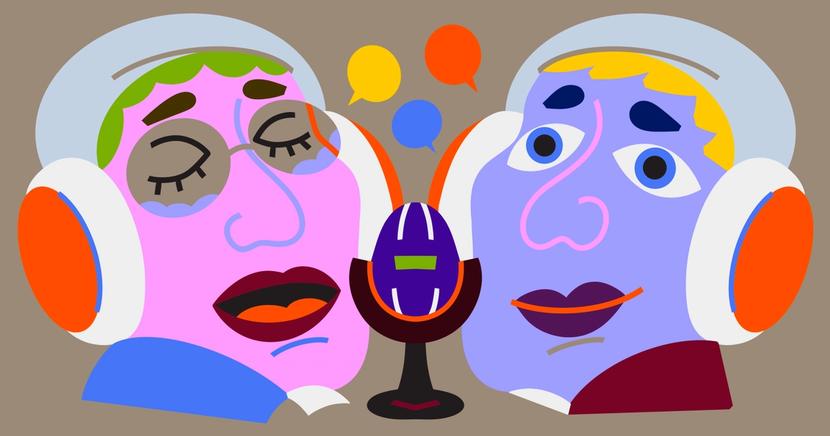
How Stack Internal provided the foundation for a culture of continuous learning and open collaboration.

How we feel about AI-generated content, what AI detectors tell us, and why human creativity matters. Also, what is art?

Here, we’ve distilled the survey findings, laid out action items for leadership, and dug into recommendations around agentic AI for the enterprise. Spoiler alert: It all comes back to data quality.
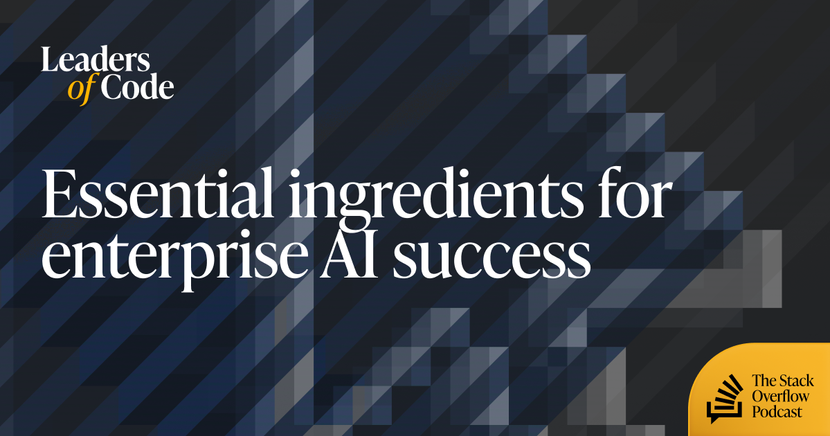
Today at Microsoft Ignite, we’re showcasing the next step in our evolution: Stack Overflow for Teams is now Stack Internal. It’s the next phase of our enterprise knowledge platform, reimagined for the AI era.
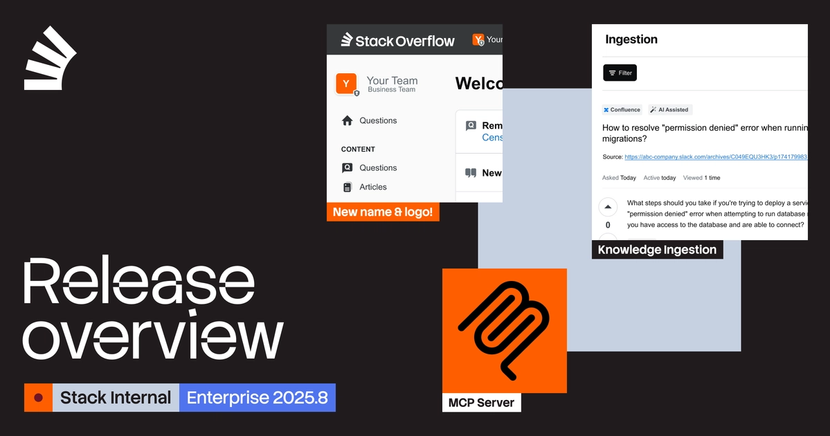
The most effective learning doesn’t happen in a classroom. It happens during work.
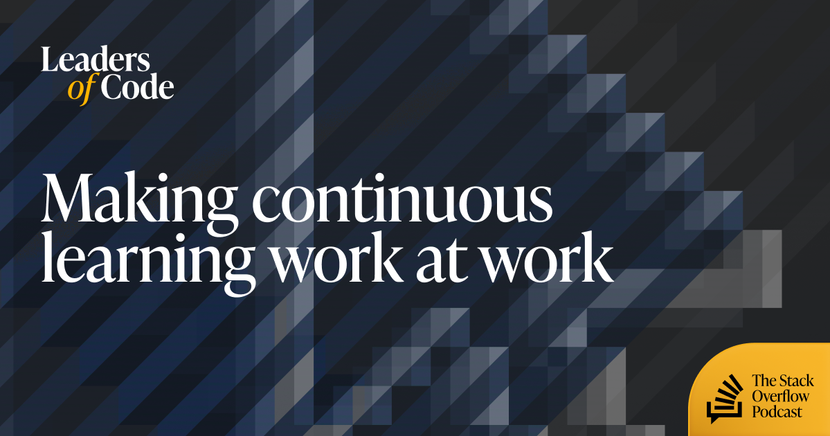
Striking the balance between speed and strategy is a major challenge for business and tech leaders. That’s where aligned autonomy comes in.
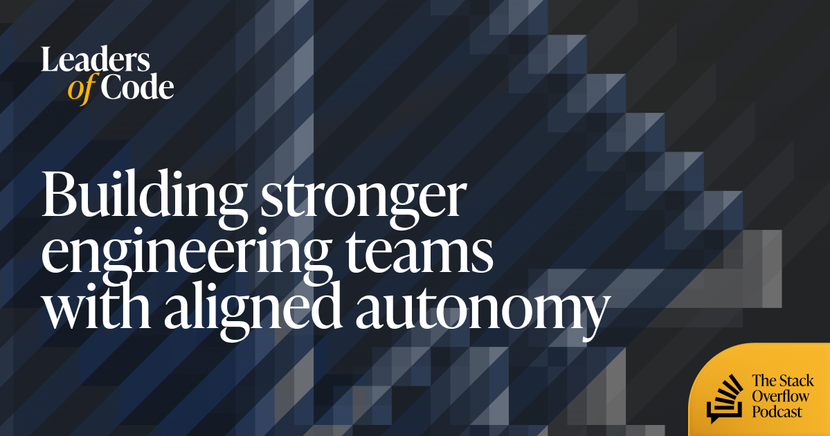
Positioned at the intersection of automation, decision intelligence, and data orchestration, AI agents are quickly emerging as essential tools for aligning business outcomes with technical workflows.
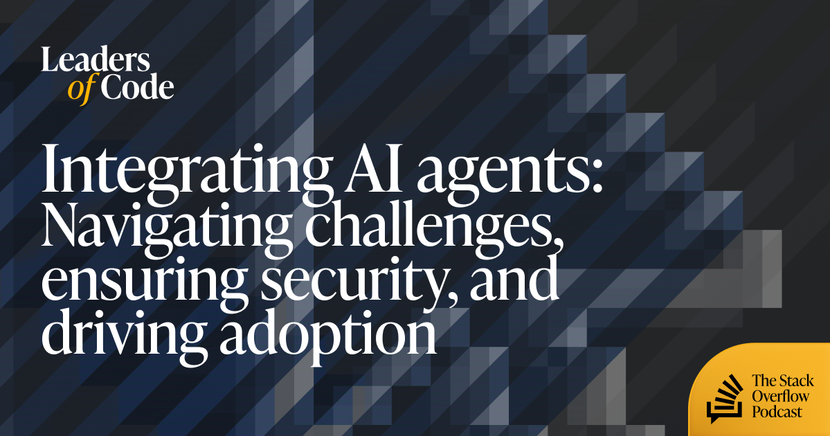
Douwe Kiela, CEO and cofounder of Contextual AI, joins Ryan and Ben to explore the intricacies of retrieval-augmented generation (RAG). They discuss the early research Douwe did at Meta that jump started the whole thing, the challenges of hallucinations, and the significance of context windows in AI applications.
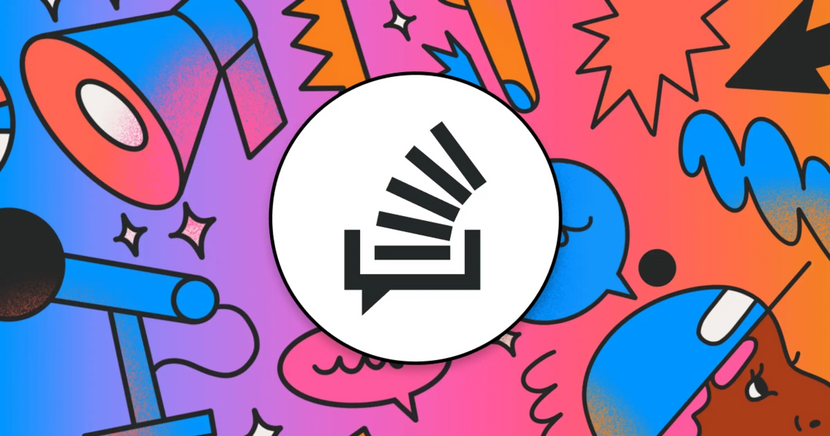
Christophe Coenraets, SVP of Developer Relations at Salesforce, tells Eira and Ben about building the new Salesforce Developer Edition, which includes access to the company’s agentic AI platform, Agentforce. Christophe explains how they solicited and incorporated feedback from the developer community in building the developer edition, what types of AI agents people are building, and the critical importance of guardrails and prompt engineering.

Maryam Ashoori, Head of Product for watsonx.ai at IBM, joins Ryan and Eira to talk about the complexity of enterprise AI, the role of governance, the AI skill gap among developers, how AI coding tools impact developer productivity, what chain-of-thought reasoning entails, and what observability and monitoring look like for AI.

Ben Popper chats with CTO Abby Kearns about how Alembic is using composite AI and lessons learned from contract tracing and epidemiology to help companies map customer journeys and understand the ROI of their marketing spend. Ben and Abby also talk about where open-source models have the edge and the challenges startups face in building trust with big companies and securing the resources they need to grow.

Ryan welcomes Jeu George, cofounder and CEO of Orkes, to the show for a conversation about microservices orchestration. They talk through the evolution of microservices, the role of orchestration tools, and the importance of reliability in distributed systems. Their discussion also touches on the transition from open-source solutions to managed services, integration opportunities for AI agents, and the future of microservices in cloud computing.

At HumanX 2025, Ryan chatted with Rodrigo Liang, cofounder and CEO of SambaNova, about reimagining 30-year-old hardware architecture for the AI era.

Ryan talks with Greg Fallon, CEO of Geminus, about the intersection of AI and physical infrastructure, the evolution of simulation technology, the role of synthetic data in machine learning, and the importance of building trust in AI systems. Their conversation also touches on automation, security concerns inherent in AI-driven infrastructure, and AI’s potential to revolutionize how complex infrastructure systems are managed.

Today’s episode is a roundup of spontaneous, on-the-ground conversations from HumanX 2025, featuring guests from CodeConductor, DDN, Cloudflare, and Galileo.

Is “agentic AI” just a buzzword, or is it the sea change it seems?

In today’s episode, Ryan sits down with Richard “Spencer” Schaefer, cofounder and CTO of Lunar Analytics and a federal AI officer, and Caroline Zhang, cofounder and CTO of Knowtex, which provides AI-powered voice technology to automate workflows. They talk about safeguarding patient privacy, how AI changes doctor-patient interactions and healthcare delivery, the challenges inherent in rolling out AI technology, and the importance of quality data to fuel AI initiatives. Also included: a chat with Jeff Berkowitz, cofounder and CEO of Delve Deep Learning.

Ryan chats with Amr Awadallah, founder and CEO of GenAI platform Vectara about how retrieval-augmented generation (RAG) has advanced, why fact-checking and accurate data are essential in building AI applications, and how Vectara’s Mockingbird model seeks to minimize hallucinations.

Ryan welcomes Tomasz Tunguz of Theory Ventures back to the podcast to talk about the intersection of AI and venture capital, the implications of AI on the labor market, and the future of AI applications.

At HumanX 2025, Ryan sat down with HumanX CEO Stefan Weitz and Crunchbase CEO Jager McConnell to talk about where the money is in the AI space, where most enterprise AI strategies fall short, how companies can build business models when AI tech is evolving so quickly, and why this is AI’s microservices moment.
